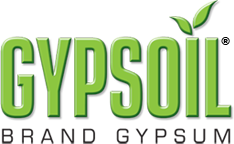News Releases
Media inquiries
Using gypsum to improve soil quality is a popular topic for farm and agricultural inflencer audiences. Please contact our communications consultant Karen Bernick at 1-866-GYPSOIL (497-7645) if you have questions, need story ideas, photos or want to set up interviews with a GYPSOIL team member. GYPSOIL also participates in many national trade shows and meetings including Ag Media Summit, Commodity Classic, National No Tillage Conference and Farm Progress show to name a few.
to improve soil quality is a popular topic for farm and agricultural inflencer audiences. Please contact our communications consultant Karen Bernick at 1-866-GYPSOIL (497-7645) if you have questions, need story ideas, photos or want to set up interviews with a GYPSOIL team member. GYPSOIL also participates in many national trade shows and meetings including Ag Media Summit, Commodity Classic, National No Tillage Conference and Farm Progress show to name a few.
High resolution photos for current news release available here.
Recorded and Powerpoint presentations from the 2014 Midwest Soil Improvement Symposium can be found on the Symposium page.
Highlights from the 2014 press conference at Ohio Farm Science Review.
A collection of general press releases can be found below:
Learn how to use ag lime and gypsum to improve soil
Fall is an ideal time to apply soil amendments that enhance soil chemistry and improve soil physical characteristics. Agricultural soils with ideal pH levels and good soil structure – with well-aggregated soil particles and plenty of pore spaces for air and water movement -- are important for crops to thrive.
Ag lime and gypsum are two common soil amendments that impact soil quality but sometimes there is confusion about their purposes and when to use one or the other amendment.
Ag lime is an acid-soluble material, often calcium carbonate or magnesium carbonate, applied to cropland to raise the pH of acidic soils. Acid soils, or soils with excess active hydrogen (H+), can curb a growing plant’s ability to reach its potential by limiting nutrient availability and biological activity. Scientists recommend soil pH of 6.2 to 6.8 as ideal for most crops.
Gypsum is calcium sulfate dihydrate. It is not acid soluble and is not recommended for altering soil pH. Gypsum is used to add sulfur and improve soil particle aggregation. The sulfate in gypsum binds with excess magnesium (an element which causes poor soil structure) in the soil to form Epsom salts that easily move down through the soil profile. The magnesium is then replaced by calcium to improve soil structure and produce better results for water holding capacity, root development and soil quality.*
“We use lime where we have very low calcium and low pH,” says Cory Schurman, national sales manager with GYSPOIL brand gypsum. “We use calcium sulfate (gypsum) where we have more neutral pH but where we have higher magnesium levels and lower calcium levels.”
Schurman adds that some growers use gypsum the year before they apply lime in order to lower magnesium levels and improve the efficiency of liming. “They work well together and tend to complement each other,” says Schurman.
To learn more about using ag lime and gypsum, download a new fact sheet at www.gypsoil.com/lime or call 866-GYPSOIL (497-7645). See a video of Cory Schurman discussing lime and gypsum.
*Chen, Liming, and Warren Dick, 2011, “Gypsum as an Agricultural Amendment,” Extension Bulletin 945, The Ohio State University. Columbus, OH
GYPSOIL is a division and tradename of Beneficial Reuse Management LLC. Its mission is to make a positive impact in its customers’ soil and crops while conserving natural resources and protecting the environment. GYPSOIL identifies gypsum supplies, assists in meeting regulatory compliance, helps growers understand the agronomics and application methods in using gypsum, and develops cost-effective distribution and transportation networks. GYPSOIL brand gypsum is distributed to crop growers in the Midwest, Delta and Southeast. www.gypsoil.com.
GYPSOIL is a trade name of the GYPSOIL Division of Beneficial Reuse Management LLC
372 West Ontario Street ● Suite 501 ● Chicago, IL 60654 ● 1-866-GYPSOIL (497-7645)
● www.gypsoil.com ● Twitter @gypsoil ● Facebook.com/pages/gypsoil.

